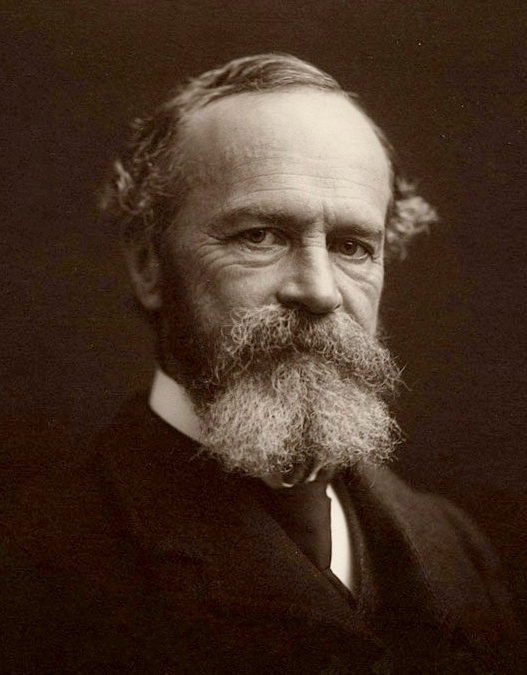William James Berühmte Zitate
„Ein Ding ist dann wichtig, wenn irgendjemand denkt, dass es wichtig ist.“
Die Prinzipien der Psychologie
Die religiöse Erfahrung in ihrer Mannigfaltigkeit
„Genie ist in Wahrheit kaum mehr als die Fähigkeit, auf ungewöhnliche Weise wahrzunehmen.“
Die Prinzipien der Psychologie
Die Prinzipien der Psychologie
„Eine Idee, die anregen soll, muss zu dem Einzelnen kommen mit der Wucht einer Offenbarung.“
Die religiöse Erfahrung in ihrer Mannigfaltikeit
Brief aus dem Jahr 1904, in: C.Stumpf: William James nach seinen Briefen. Leben, Charakter, Lehre, Berlin 1928, S. 17
William James: Zitate auf Englisch
“Genius, in truth, means little more than the faculty of perceiving in an unhabitual way.”
Quelle: 1890s, The Principles of Psychology (1890), Ch. 19
Quelle: The Writings of William James
Quelle: The Varieties of Religious Experience
Quelle: The Will to Believe and Other Essays in Popular Philosophy
Quelle: 1890s, The Principles of Psychology (1890), Ch. 4
Quelle: Habit
Kontext: Keep the faculty of effort alive in you by a little gratuitous exercise every day. That is, be systematically ascetic or heroic in little unnecessary points, do every day or two something for no other reason than that you would rather not do it, so that when the hour of dire need draws nigh, it may find you not unnerved and untrained to stand the test. So with the man who has daily inured himself to habits of concentrated attention, energetic volition, and self-denial in unnecessary things. He will stand like a tower when everything rocks around him, and when his softer fellow-mortals are winnowed like chaff in the blast.
Lectures XIV and XV, "The Value of Saintliness"
Quelle: 1900s, The Varieties of Religious Experience (1902)
Kontext: I am well aware of how anarchic much of what I say may sound. Expressing myself thus abstractly and briefly, I may seem to despair of the very notion of truth. But I beseech you to reserve your judgment until we see it applied to the details which lie before us. I do indeed disbelieve that we or any other mortal men can attain on a given day to absolutely incorrigible and unimprovable truth about such matters of fact as those with which religions deal. But I reject this dogmatic ideal not out of a perverse delight in intellectual instability. I am no lover of disorder and doubt as such. Rather do I fear to lose truth by this pretension to possess it already wholly.
Lecture VI, Pragmatism's Conception of Truth
1900s, Pragmatism: A New Name for Some Old Ways of Thinking (1907)
Quelle: The Varieties of Religious Experience
“This life is worth living, we can say, since it is what we make it, from the moral point of view.”
"Is Life Worth Living?"
1890s, The Will to Believe and Other Essays in Popular Philosophy (1897)
"Is Life Worth Living?"
1890s, The Will to Believe and Other Essays in Popular Philosophy (1897)
Quelle: 1920s, Collected Essays and Reviews (1920), Ch. 11 - Clifford's Lectures and Essays" (1879)
"Is Life Worth Living?"
1890s, The Will to Believe and Other Essays in Popular Philosophy (1897)
“As a rule we disbelieve all the facts and theories for which we have no use.”
"The Will to Believe" p. 10 http://books.google.com/books?id=Moqh7ktHaJEC&pg=PA10
1890s, The Will to Believe and Other Essays in Popular Philosophy (1897)
“Instinct leads, intelligence does but follow.”
Statement of 1902 quoted in The William James Reader (2007), Vol I, p. 264
1900s
Quelle: 1890s, The Principles of Psychology (1890), Ch. 10
Lecture II, What Pragmatism Means
1900s, Pragmatism: A New Name for Some Old Ways of Thinking (1907)
